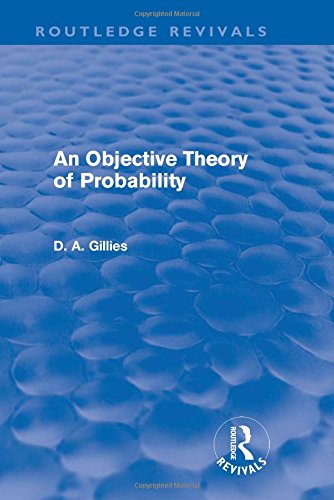

Most ebook files are in PDF format, so you can easily read them using various software such as Foxit Reader or directly on the Google Chrome browser.
Some ebook files are released by publishers in other formats such as .awz, .mobi, .epub, .fb2, etc. You may need to install specific software to read these formats on mobile/PC, such as Calibre.
Please read the tutorial at this link: https://ebookbell.com/faq
We offer FREE conversion to the popular formats you request; however, this may take some time. Therefore, right after payment, please email us, and we will try to provide the service as quickly as possible.
For some exceptional file formats or broken links (if any), please refrain from opening any disputes. Instead, email us first, and we will try to assist within a maximum of 6 hours.
EbookBell Team

5.0
88 reviewsThis reissue of D. A. Gillies highly influential work, first published in 1973, is a philosophical theory of probability which seeks to develop von Mises’ views on the subject. In agreement with von Mises, the author regards probability theory as a mathematical science like mechanics or electrodynamics, and probability as an objective, measurable concept like force, mass or charge. On the other hand, Dr Gillies rejects von Mises’ definition of probability in terms of limiting frequency and claims that probability should be taken as a primitive or undefined term in accordance with modern axiomatic approaches.
This of course raises the problem of how the abstract calculus of probability should be connected with the ‘actual world of experiments’. It is suggested that this link should be established, not by a definition of probability, but by an application of Popper’s concept of falsifiability. In addition to formulating his own interesting theory, Dr Gillies gives a detailed criticism of the generally accepted Neyman Pearson theory of testing, as well as of alternative philosophical approaches to probability theory. The reissue will be of interest both to philosophers with no previous knowledge of probability theory and to mathematicians interested in the foundations of probability theory and statistics.